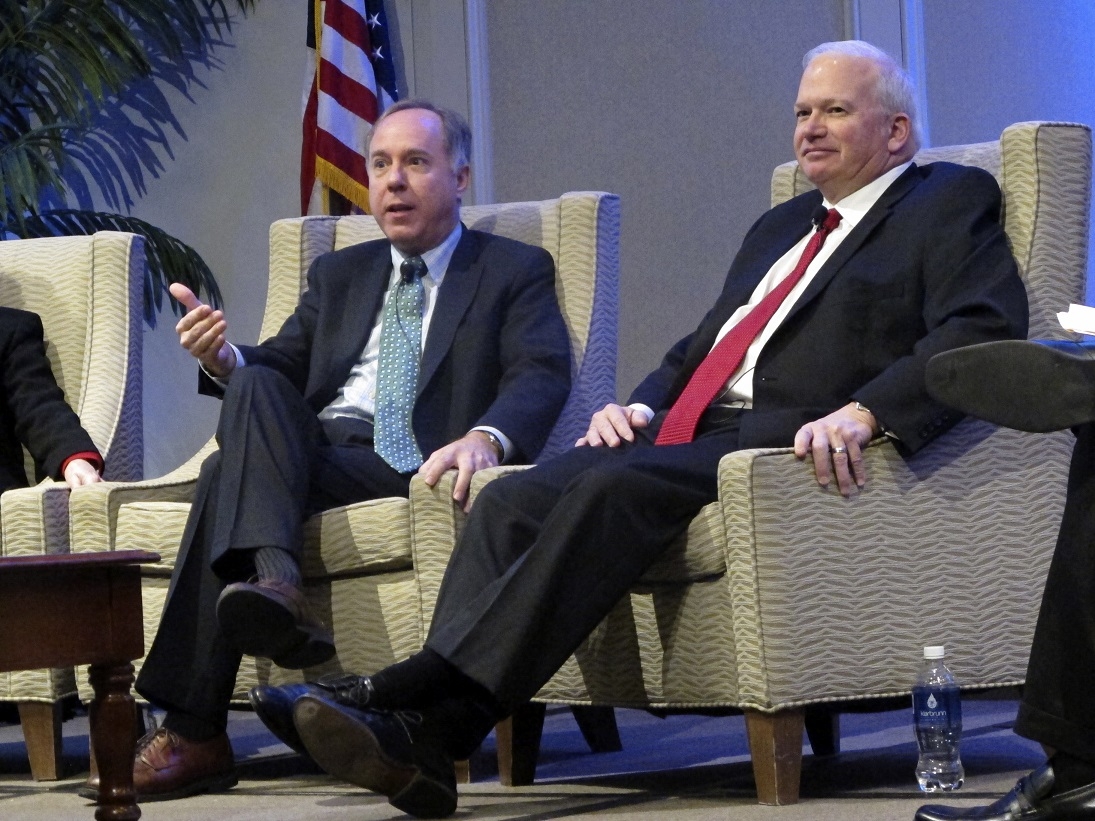Wisconsin
AP FACT CHECK: Immigrants won’t get better tuition than vets

Wisconsin Republicans are decrying a policy in Democratic Gov. Tony Evers’ proposed budget that would grant in-state tuition at public colleges to non-U.S. citizens who graduated from a Wisconsin high school or have been a resident of the state for three years.
Democrats enacted the benefit more than a decade ago when they fully controlled state government, but former Republican Gov. Scott Walker revoked it when he took office in 2011.
Evers’ plan would add Wisconsin to a list of 16 states that currently allow immigrants living in the U.S. without authorization to pay in-state college tuition, according to the National Conference of State Legislatures.
Earlier this week, state Republicans who oppose the measure said the immigrants will get a better deal on tuition than veterans. In a statement Tuesday, Wisconsin Senate Majority Leader Scott Fitzgerald, a Republican and Army veteran, called the plan “offensive” and said the governor’s budget “put illegal immigrants ahead of veterans.”
Here is a look at the claim about Evers’ proposal, issued in a statement by Fitzgerald:
FITZGERALD: “The governor has decided that those who are violating federal law should get a better deal than Wisconsin’s heroes.”
THE FACTS: Fitzgerald’s claim about the impact of Evers’ proposal is incorrect.
The governor’s plan would not give non-U.S. citizens a better deal on college compared to Wisconsin veterans. Wisconsin’s active duty veterans can attend the state’s public colleges tuition-free, whereas Evers’ proposal would reduce but not eliminate the tuition costs for non-U.S. citizens living in the state.
Currently, the state’s public college system can charge non-resident tuition for people in the country illegally. Evers’ proposal would allow non-U.S. citizens who graduated from a Wisconsin high school or lived in the state for three years to pay in-state tuition, reducing the cost of a public college education in the school by thousands of dollars. For example, at the University of Wisconsin-Madison, tuition for a non-U.S. citizen would drop from $36,805 for non-residents to $10,555 for the current school year.
Meanwhile, state law waives tuition entirely at University of Wisconsin System or Wisconsin Technical College System schools for veterans who were Wisconsin residents at the time of their active duty enlistment, according to information provided by the Wisconsin Department of Veterans Affairs. The program, known as the Wisconsin GI Bill, allows veterans to use this benefit for up to 128 credits, or eight semesters, as long as the students maintain a 2.0 grade-point average. Veterans also do not pay for certain school fees the campuses charge, such as student activity or student center fees. The state law is in addition to the federal GI Bill, which provides public college tuition, monthly housing allowance and annual book stipends for military veterans.
Wisconsin Republicans including state Sen. Dan Feyen have pointed out that some veterans must wait five years to access free tuition through the Wisconsin GI Bill. However, that’s only true for veterans who were not Wisconsin residents at the time they enlisted in the active duty military.
Last school year, more than 3,300 Wisconsin veterans received tuition and fees totaling $14.4 million from the state’s public and technical colleges, according to a report released in January by the state’s non-partisan Legislative Fiscal Bureau. More than 3,000 students were eligible for the Wisconsin GI Bill last year but didn’t need the state to reimburse tuition because the federal program covered the costs entirely, according to the same report.






